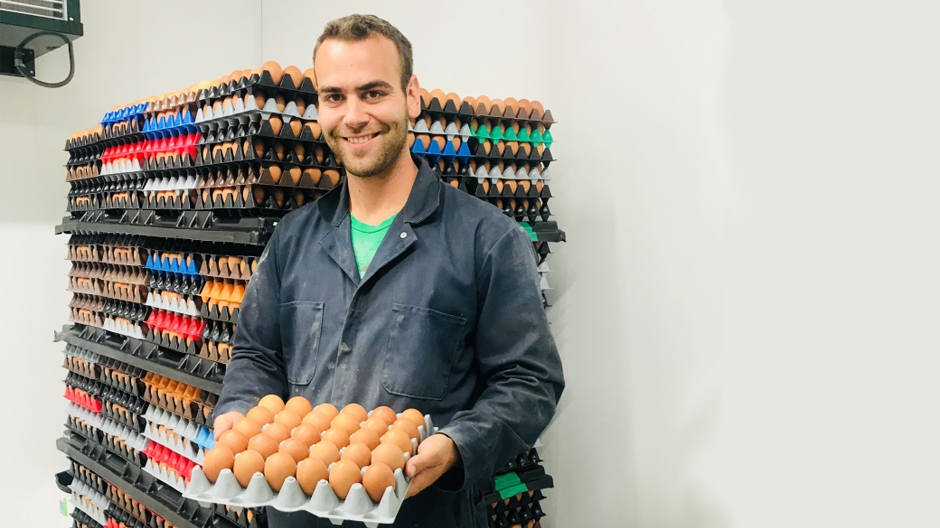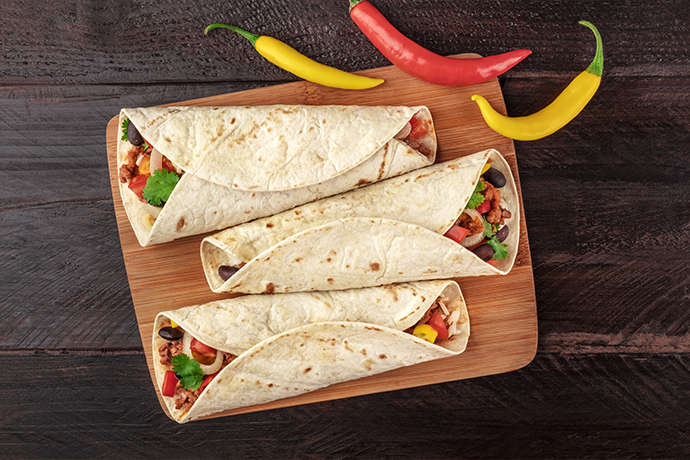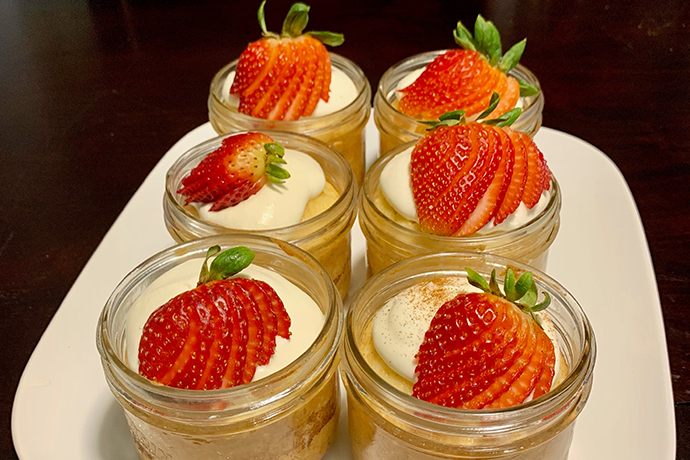
BC Poultry Farmer
Jared DeDood grew up as the third generation on his family dairy farm (Farmer John’s Market) in Grindrod, BC. In 2017, an opportunity came up with B.C. Egg’s New Producer Program and he added the title of BC egg farmer to his resume. Starting Okanagan Riverbend Poultry at the age of 23, Jared was one of the youngest egg farmers in the province of BC! Jared is passionate about caring for his animals and producing safe, healthy affordable food for families across BC.
Read the profile below and watch the video from BC Egg to learn more about Jared’s egg farm.
WHL BC: Can you tell us about your farm?
JD: The hens I have are the Lohmann breed (brown feathered chicken) and I produce certified organic brown eggs. I receive my birds at 18 weeks of age. They come into a fresh, clean barn and spend some time learning where to lay eggs, where to get feed and water, and where to sleep. Right around 19 weeks of age, is when the birds start to lay eggs. I ship my eggs every Sunday to the grading station, and then they're on the shelves in grocery stores within seven to twelve days.
WHL: Can you describe your farm and housing system for our readers? How does it help you care for your birds?
JD: I was one of the first farmers in the Okanagan to install a Big Dutchman aviary system. It’s a three-tier setup. The bottom tier is where the hens get their feed and water. The middle layer has their laying nests where they lay their eggs. The laying nests open and close based on a computer which I program. It opens up about two hours before the lights turn on in the barn in the morning. The hens are usually done laying their eggs by about noon or so. And then at night the doors to the nests close two hours before the lights go out. This helps to keep manure out of the nests, which also means cleaner hens and cleaner eggs.
The third tier has more feed and water and more perching. This is where the birds prefer to sleep (perched up high away from the ground). In the summer, my birds go outside a lot, so I have a big pasture for them and they have little doors that they get to go out of. They absolutely love it and we try our best to get them outside every day. However, if the conditions aren’t good (e.g. too cold or too wet) the hens prefer to stay in the barn where they are comfortable and protected.
WHL: How do you ensure your eggs are safe to eat? Are there any certification programs that you participate in?
JD: Yes. We are growing birds and we are in charge of animals, so we have to be at the top of our game at all times. Every registered egg farmer in Canada participates in Start Clean Stay Clean – it's an on-farm food safety program that makes sure we are meeting standards for egg storage, cleanliness, air quality, feed and record keeping. There is also a national Animal Care Program that we participate in which sets excellent animal care standards and ensures that they are all met. In that program, there is SE (salmonella) testing where a representative from BC Egg comes and swabs every part of our barn. I’m a specialty egg producer, so we have a specialty audit too. “Specialty” includes organic, free range, and free run chickens. This program monitors the outdoor pasture that the hens use to make sure they have an adequate amount of space and that they’re protected from other wildlife. And then my favourite one is my organic products certification. You should see the paperwork that it requires! A third-party auditor checks to make sure that we are feeding the hens certified organic feed, never giving them antibiotics and that they have enough space and access to the outdoors.


